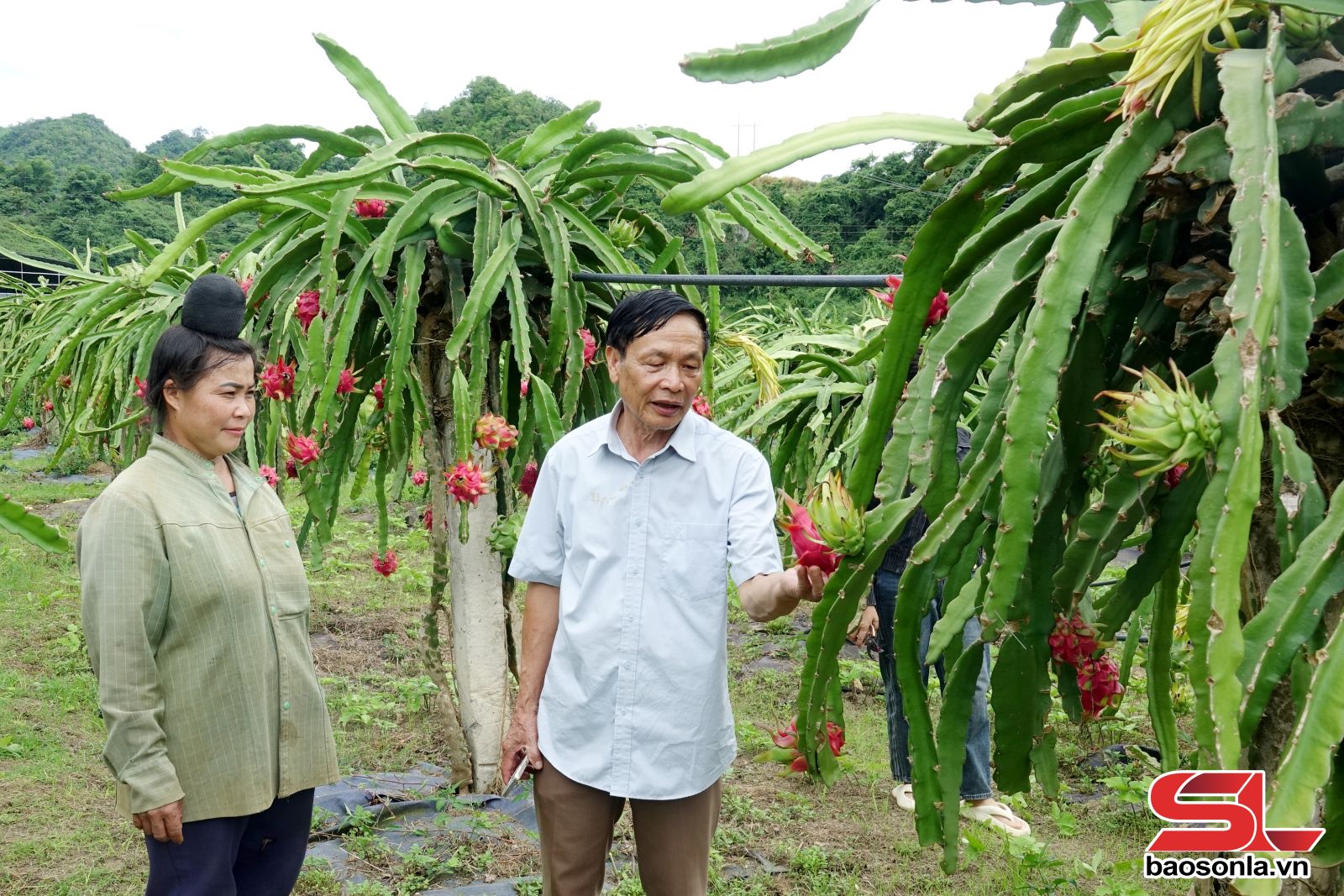

With the goal of linking and applying scientific and technological advances in production, 17 households in Hang Mon 1 and 2 hamlets, Phieng Khoai commune, Yen Chau district, contributed capital and 35 hectares of land to establish the Toan Phat Agricultural Services Cooperative. They grow plums following VietGAP standards. After seven years, the area has doubled to 70 hectares. Cooperative members are well-versed in VietGAP and organic farming techniques, producing high-quality plums that sell for 20–30% more than traditional produce.
Nguyen Khanh Toan, Director of the Toan Phat Agricultural Services Cooperative, said that participating in the value chain, securing market outlets is no longer a worry like before when high yields meant falling prices. Producing under pre-orders allows cooperative members to focus on maintaining quality and meeting market demand.
The Ngoc Hoang Agricultural Cooperative in Na Bo commune, Mai Son district, is a standout example of building a value chain for dragon fruit. Starting with 11 members, the cooperative has grown to 215 members after nine years, managing 500 hectares of fruit trees, mainly red-fleshed dragon fruit. In 2024, 200 hectares yielded approximately 4,000 tonnes of fruit, of which 800 tonnes were exported to countries such as Russia, France, Germany, the Netherlands, and Italy at an average price of 45,000 VND (1.73 USD) per kg. The rest was sold domestically at around 15,000 VND per kg. The cooperative’s revenue reached 8.4 billion VND (323,730 USD), averaging 300 million VND per hectare.

Do Danh Nhat from Na Bo commune shared: “The biggest advantage of joining the cooperative is that members only need to focus on properly caring for their orchards in accordance with the provided technical guidelines, ensuring product safety and quality. The cooperative takes care of the marketing and sales.”
Commenting on the issue, Cam Thi Phong, Deputy Director of the provincial Department of Agriculture and Environment, said that the linkage between production and consumption aligns with current development trends. It helps cooperatives and enterprises maintain steady growth and avoid the ‘good harvest, low price’ situation. At the same time, it ensures a stable and high-quality supply of agricultural products.
The province has so far developed 308 safe food supply chains for agricultural and aquatic products, including 188 fruit supply chains covering more than 4,100 hectares with an annual output of over 53,000 tonnes. It has maintained 218 planting area codes across 3,100 hectares and eight packing facility codes for export.
However, participation in agricultural supply chains remains fragmented and loosely connected. Most agricultural products are still sold through intermediaries, wholesalers, and various levels of retailers. The involvement of many middlemen increases costs and complicates traceability and quality control. Links between farmers and traders are often seasonal and dependent on large-scale buyers.
To address challenges in value chain linkages, the province has issued several supportive policies to promote cooperatives growing fruit trees and medicinal plants, improve mixed-crop gardens, and produce, process, and market safe agricultural products. It has also provided funding for managing planting area codes and focused on improving processing and preservation capacity in alignment with value chains, quality standards and raw material zones.

Farmers in Chieng Khuong commune, Song Ma district, apply automatic sprinkler irrigation technology to their orchards.
The shift from building “supply chains” to developing “commodity value chains” ensures transparency, accountability, and benefit-sharing among stakeholders. The province is also working to strengthen cooperation among the "six stakeholders": farmers, the government, businesses, banks, scientists, and distributors. Moreover, it is encouraging the participation of key enterprises with strong capital, technology, and market capacity to lead value chains and establish production-processing-consumption hubs in areas with high yield and favourable conditions.
Building linkages between businesses, cooperatives, and farmers has proven to be a valuable model for sustainable agricultural development. It will be the core direction for Son La’s agricultural production in the future.






















You have 500/500 characters left
Please enter 5 or more characters!!!